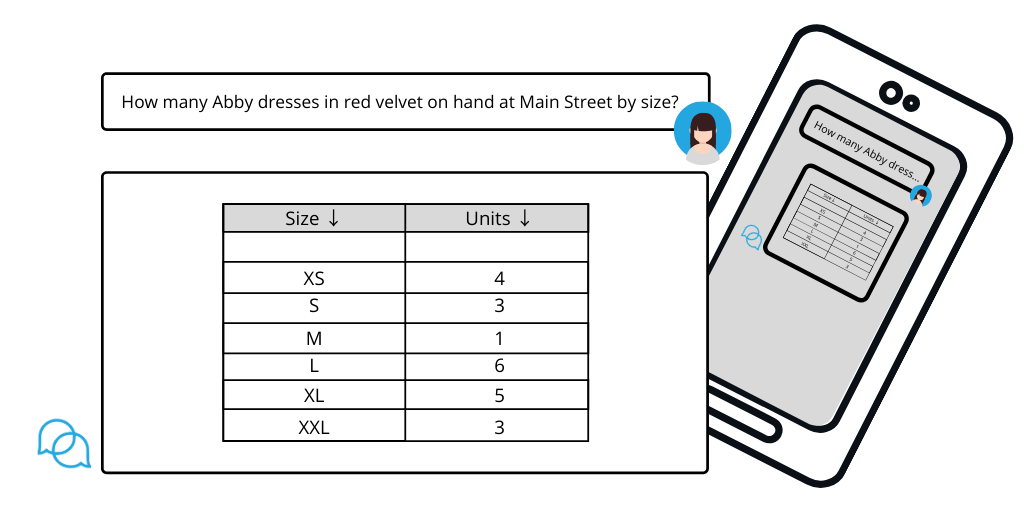AutoQL for Retail & E-Commerce Non-Power Users
~4 minute read
Data becomes more critical as many of today’s retailers move online and run hybrid businesses between an e-commerce platform and a brick-and-mortar storefront. Staying aware of every business aspect, from the supplier warehouse to the customer’s shopping cart, is essential to scaling successfully.
Data flows into retail software systems from multiple sources, including Point-of-Sale (POS) and online checkout. Customer experience is observed, tracked, and managed through in-store interactions and online reviews. You can more easily monitor each stage of the digital customer journey by accessing your data in real-time, but many systems make that difficult.
It’s common for store managers to spend more time doing admin work in the back room than taking care of their customers. But a manager’s job is to help run the entire business, not just the sales floor. They need to manage labor costs, keep an eye on inventory, and ensure that the team is hitting their sales targets. Throughout these tasks, they may have to switch between several applications to get a holistic view of what’s going on in their store.
Read more: Delivering Customer Behavior Insights that Drive Growth at Scale
Managers need to access information about stock and sales and track the status of KPIs to progress towards campaign-specific targets. With a solution like AutoQL, managers can ask for the information they’re looking for, and our AI delivers it in simple language. They can use this data to communicate effectively with leadership or leverage it to make better decisions for the business in real-time.
For example, a part-owner and manager at a busy local clothing chain is primarily responsible for their “home” store. They also offer assistance on-site at the two other locations in the city and oversee the online shopping experience they provide to customers. This manager needs direct and immediate access to sales and inventory data from the brick-and-mortar shops and the e-commerce website. Seamlessly access data on-demand, using mobile devices to get comprehensive answers, even on the go.
Seamlessly access data on-demand, using mobile devices to get comprehensive answers, even on the go.
En route between stores, the manager uses their mobile device to quickly gain insights about their business by asking questions like “How many of item X is on hand at location Y by size?” Now, they can check whether stock of a popular item is available and can be transferred from one store to the other.
They can also explore their data to find answers to questions like “Which store sold the most of item X during campaign A”, “What are the top five items sold at each store versus online?” or “Show me which store sold the most last month.” These answers let them optimize sales at each store to serve specific customer demographics and understand how online sales compare to overall storefront performance.
They could also find data like “How many customers were served at store X versus store Y last month?” or “Show me average sales per customer by store last year.” These answers may determine if staff need to be reallocated across locations and how upcoming yearly events like summer vacation or the holidays are likely to affect foot traffic.
Read more: Enabling Data-Driven Decision Making at Agile SaaS Companies
With insight-rich information at their fingertips, business teams (who aren’t trained data analysts) can quickly find the information they’re looking for in the ever-growing volume of data they possess. With a clearer view of fluctuating stock, changing customer behaviors, and sales success across locations and platforms, business managers and their teams can make impactful decisions more efficiently, driving their business forward with confidence.
Leveraging this data-on-demand functionality, e-commerce and physical retail stores can count on increased data usage. Merchandisers, managers, and business teams can access critical insights to improve productivity and enable better sales decisions.
AutoQL gives any authorized user access to internal business data without needing an analyst or waiting for reports to be compiled. There’s no need to learn coding and no required training course to use AutoQL. Take advantage of our intuitive, self-serve data access options with zero learning curve.

